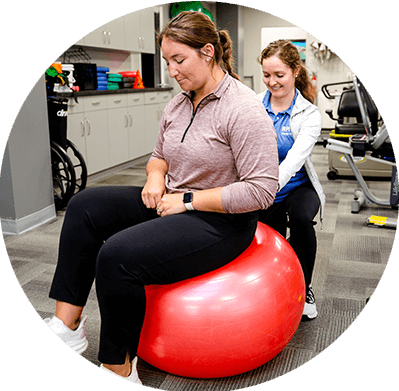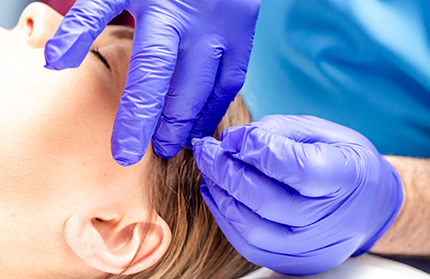EHLERS-DANLOS SYNDROME
Manual Physical Therapy
Ehlers-Danlos syndrome (EDS) is a hereditary disorder that affects the connective tissue in a variety of ways, including structure and function of collagen. It can affect organ function and joints. Physical therapists help with the management of pain that occurs with the hypermobility subtype of EDS. Common symptoms of EDS includes: joint pain, muscle pain, nerve pain, recurrent dislocations and subluxations, and muscle tension and weakness.
Hypermobility Spectrum Disorder (HSD) is a connective tissue disorder that is symptomatic by joint hypermobility, but genetic testing has been performed and the hypermobility is not explained by EDS or other hypermobility-related disorders.

As physical therapists, we focus on the hypermobility aspect of EDS, offering skilled management of hEDS and HSD. Here at RPI we have been working with and learning from clients with this condition for over 10 years. Over this time, we have developed a specialized program to meet the additional needs of this population. We have found that when a person has hypermobility of joints, the muscles will spasm in order to stabilize the joint due to weakness in the stability muscles; this causes an increase in pain.
In our clinic, we have introduced the EDS/HSD Stabilization Program. This is a comprehensive management program that evaluates and treats pain and multiple joint instability. The program starts at your first visit. One of our skilled clinicians will perform a comprehensive evaluation, assessing your posture, joints, and muscles. We then set you up with a number of exercises to help stabilize your joints, as we work on decreasing muscle spasm with manual therapy techniques and trigger point dry needling.
We will also refer you to clinicians in other specialties and assess all of your needs including, but not limited to: pedorthist, cardiologist, pain management, rheumatology, neurology, and gastroenterology.
Treatment during the process will include a program with strengthening exercises specifically chosen for your impairments. We have also found that patients with hypermobility respond well to trigger point dry needling which helps to release muscle spasm. We would love to help decrease your pain and improve your quality of life.
Call our Clayton clinic at 314-644-1978 to set up an evaluation.

